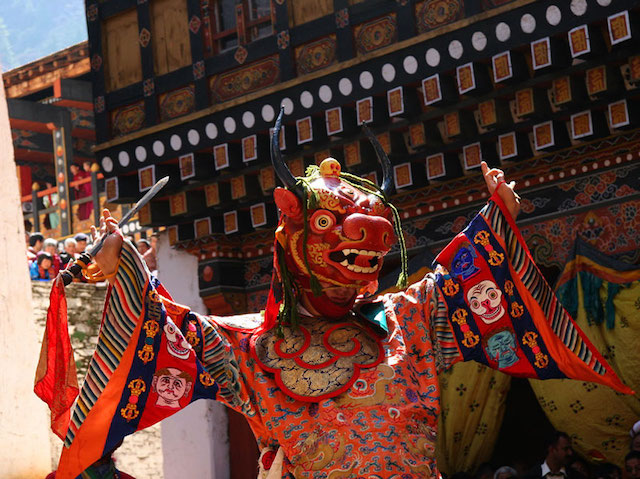Tashi Delek!
The Tibetan New Year—commonly known as Losar—started on February 16th.
The celebration traditionally spans over three days, ending this year on Sunday, February 18th. Losar follows the cycles of the moon, so the Tibetan new year always begins on a new moon.
I celebrated Losar at Kopan Monastery in Kathmandu, Nepal. This place is dear to my heart and so was the celebration. Buddhists treat Losar as welcoming a fresh start and letting go of the past.
The lamas and monks at Kopan did rituals to purify the negative energies and patterns of last year, offered pujas, performed traditional dances, and made aspirations for the upcoming year. Tibetans traditionally clean their houses very thoroughly before Losar and wear new (or freshly washed) clothes too.
This celebration is prominent in Tibetan culture, and it’s of special importance to me and many others. Usually, in the West, we hold on tight to old habits and beliefs, and find it difficult to let things go. We feel discontent about what is absent in our lives and allow it to define our present moment. In contrast, Buddhists understand that holding on to the past causes suffering. That said, they celebrate what is ending and welcome what’s yet to come with arms wide-open.
Losar is a very significant event in the East. Buddhist or not, reflecting on what this day symbolizes is of great benefit to our personal growth. Releasing the past and starting fresh are at the crux of the Buddha’s teachings. As he taught, if we wish to find happiness and peace within us and spread it, our old ideas of self must die. Our idea of self contains our old stories, delusions, preconceptions, and misery. The more we grasp onto it, the less we tap into our real nature that only lives now.
As Eckhart Tolle says, “You must die before you die.” This doesn’t mean we should end our lives, of course. It means that every day, every moment, we should die to the moment that has just passed.
This is an imperative notion in Zen Buddhism which is prominent in Japan and China. A main focus of the idea of rebirth in this tradition is that everything is being reborn every moment, like a baby leaving his mother’s womb and seeing the light for the first time.
Consequently, Losar is a beautiful reminder to release the past and everything along with it that no longer serves us. As the Buddha explained, our entire life is based on impermanence. Without change, there would be no growth, no new beginnings, no better things. Tibetans don’t just callously discard the events of the previous year. Instead, they appreciate it, as they believe that the old always makes way for the new.
Here’s how we can welcome Losar in our own way:
Examine your feelings and identify what’s holding you back.
Ask yourself, “What is it that’s holding me back and not allowing me to move forward?” Sometimes a simple idea or concept keeps us stuck in our minds. Examine your emotions, thoughts, actions, and reactions. By bringing awareness to what we say and do, we can gain better knowledge of our constitution, thus solving various internal problems.
Celebrate the old.
In other words, celebrate the good and the bad, because they both served as the bridges that have led us to where we are today. Before we put the past behind though, we can pay gratitude for it. If we want to bid farewell to anything, we have to become friends with it first, forgive it if necessary, and understand it fully—or else it will keep us trapped. As the Buddhists believe, everything is interdependent and connected, including the events in our life.
Understand the nature of the old.
What’s past exists nowhere but in our minds. If we were to look at it seriously, we’d realize this is true. Thoughts and emotions manifest spontaneously, and we take them to be solid truths. Know that the only thing holding you back is yourself. Nonetheless, we can never fully release that thought or emotion unless we’re ready. Only when we’re ready to stop identifying with pain and reach true happiness will we let go of the old.
A small meditation to release.
You don’t have to sit cross-legged or light incense to reflect on the past. Just be present at any calm place—either in nature or indoors—close your eyes and reflect on the events of the prior year. Forgive those involved in what transpired (including yourself) and set the intention to see things as they are today rather then through the lens of the past. You can say, “I release what’s no longer serving me. I seek forgiveness from the people I hurt, and I forgive those who hurt me.”
Then, take a deep breath, smile, and be certain that the new is your ally—not your enemy.
~
~
~
Author: Elyane Youssef
Image: Wikicommons
Editor: Travis May
Copy Editor: Kenni Linden







Read 4 comments and reply